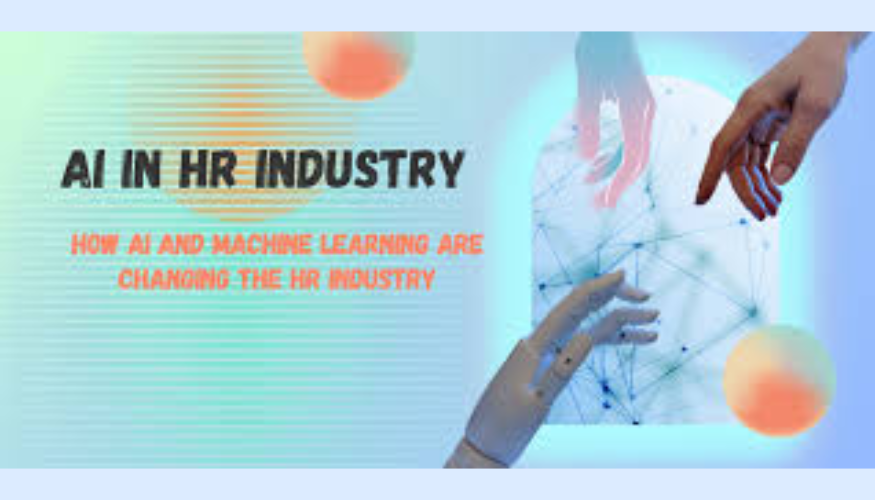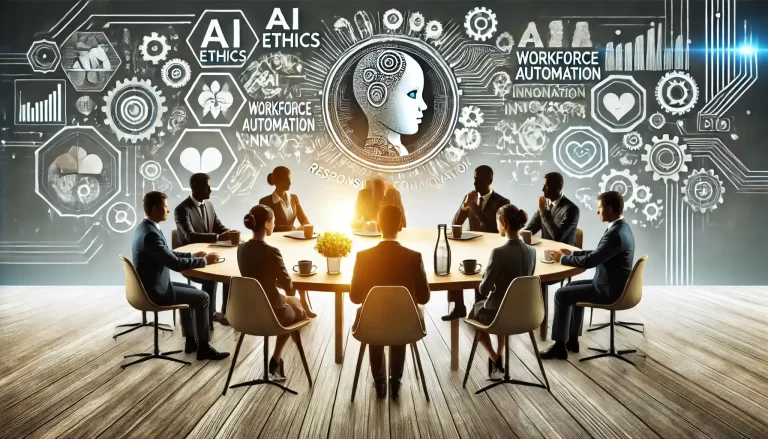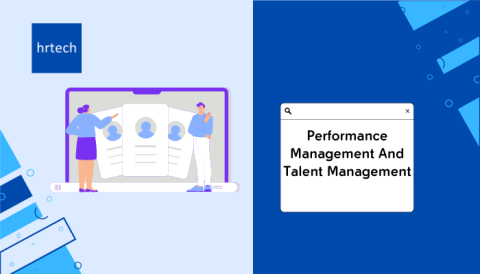The human resources (HR) field is rapidly evolving due to technological advancements. Artificial intelligence (AI) and machine learning have the potential to greatly impact HR processes and transform how HR managers handle recruitment, employee engagement, performance management, and more. HR teams embracing these technologies will likely have a competitive advantage in the coming years.
According to a recent study by IBM, over 75% of HR managers anticipate AI will significantly change their roles in the next 3 years. Additionally, over 80% believe AI can help improve the employee experience. It’s clear that AI and automation in HR are the future.
How AI And Machine Learning Are Revolutionizing HR:

Recruiting And Hiring:
AI algorithms can screen resumes and job applications to immediately identify qualified candidates based on required skills, experience level, and cultural fit. Chatbots and digital assistants can handle the initial interview screening process as well. This allows recruiters to focus their efforts on the most promising applicants instead of manually reviewing hundreds of resumes.
AI recruitment software can also source potential candidates from online platforms, resume databases, and social media channels. Machine learning further enables the automation of tasks like scheduling interviews, email outreach, and updating the applicant tracking system. This significantly cuts down the time and resources required per hire.
Employee Engagement:
HR teams can leverage AI and machine learning to improve employee engagement as well. Sentiment analysis tools examine internal communications and employee feedback submissions to gauge overall satisfaction levels and identify potential issues or concerns across the organization.
Predictive analytics take this a step further by combining sentiment data with historical trends to determine which employees are most at risk for leaving the company. HR can then develop targeted retention initiatives.
Chatbots and digital assistants provide employees with 24/7 self-service options to access company information or submit common HR-related requests instead of waiting for an HR representative. This improves both engagement and productivity.
Performance Management:
AI algorithms help streamline performance evaluations by compiling relevant employee data from project management systems, sales reports, coaching feedback, and more. The algorithms auto-generate performance scorecards and reviews based on pre-defined company criteria, minimizing manual oversight needed from managers.
Machine learning models also enable continuous performance monitoring outside of formal review cycles. Any recent changes possibly affecting an employee’s effectiveness, whether positively or negatively, will get flagged for managers in real-time rather than wait until the next annual review.
HR Compliance:
HR teams handle a tremendous number of regulatory compliance requirements. AI automation assists by continually monitoring company-wide data and operations against employment laws or health and safety regulations. When any violation or non-compliance occurs, the technology immediately alerts HR and leadership to avoid penalties.
For example, AI can track employee certification expiration dates, overtime hours worked each week, mandatory payroll submissions prohibited workplace conduct reported in the company’s online sexual harassment training software, and more to ensure compliance across all areas.
Implementing the Best HR Software For Startups:
As highlighted above, AI and machine learning pave the way for greater efficiency, productivity, and analytics-driven insights across the employee lifecycle. However, most HR departments today still rely on legacy systems and manual processes, which will not prepare them for the business’s future needs.
That’s why forward-thinking startups seeking to scale should strongly consider implementing next-generation HR software built on a strong automation, AI, and machine learning foundation. The best HR software for startups exceeds traditional human capital management suites by offering an intelligent platform encompassing a wide range of capabilities:
- Automated recruiting with AI screening and ranking
- Sentiment analysis for employee engagement monitoring
- Predictive analytics for advanced workforce planning
- Bots for quicker employee self-service
- Customized performance scorecards auto-generated by machine learning
- Real-time compliance tracking and anomaly detection
- Interactive employee development tools with smart content recommendations
- Data visualizations and analytics dashboards
By adopting technologies tailored for HR, startups position themselves for explosive growth unhindered by administrative barriers or limited insights into their own workforce needs and opportunities. The future competitive landscape demands data-driven, tech-enabled human resources management—the time is now for forward-thinking startups to embrace AI and machine learning with the best HR software for laying a strong foundation.
The Takeaway:
The pace of innovation will only accelerate as AI and machine learning continue disrupting global industries. HR remains at the forefront of this transformation. As technology permeates deeper into the employee experience, there is no room for legacy systems, outdated metrics, or defaulting to reactive mode. Data, analytics, and predictive capabilities will drive strategic workforce planning and talent optimization.
Although some roles and responsibilities may change, HR still holds the keys to building an engaged, high-performing organization guided by human needs and technological enhancements. That combination leads to unbounded potential. HR teams willing to embrace change and empower employees through transformative tech tools like AI will discover new ways to add value across the business.
The future of work and the future of HR go hand in hand. Organizations seeking to maximize both benefits should consider exploring our HRtech solutions today. Request a demo now to learn more!





